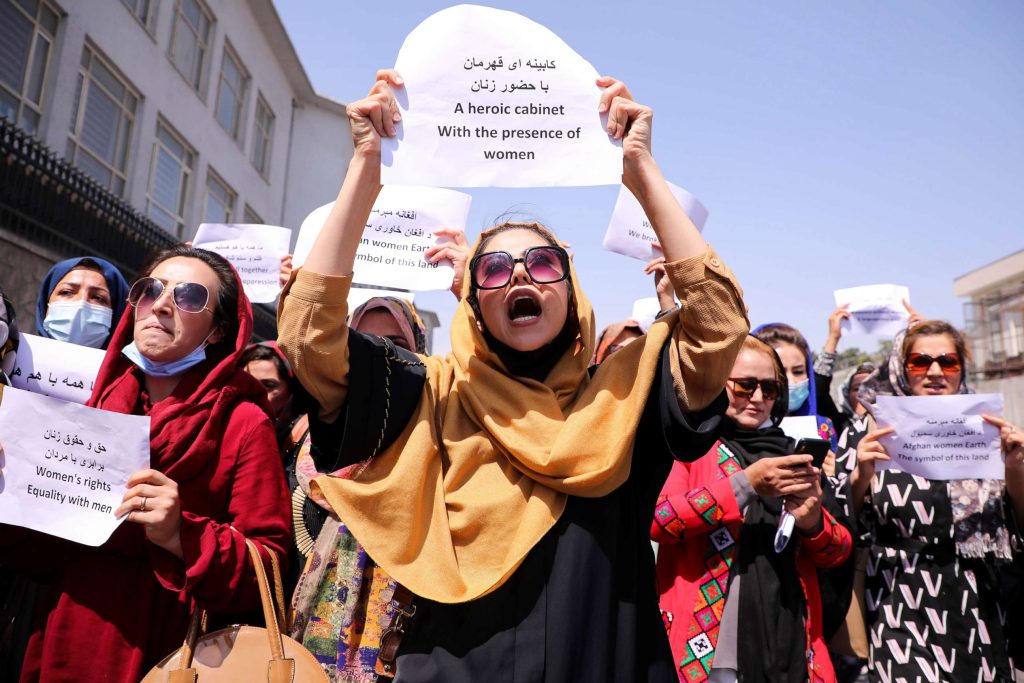In a landmark ruling, the European Court of Justice (ECJ) has established a critical precedent that has far-reaching implications for Afghan women seeking asylum in the European Union. This decision, grounded in international human rights law, signals a new approach to refugee protection that recognizes gender-based persecution in Afghanistan as a legitimate and sufficient basis for asylum. The ruling is particularly significant in the context of the Taliban’s repressive regime, which has systematically dismantled women’s rights, making Afghanistan one of the most dangerous places for women globally.

This report delves into the core elements of the ECJ ruling and its potential impact on asylum policies, the broader refugee integration framework, and the responsibilities of European states and institutions.
The Context: Gender Apartheid in Afghanistan
Since the Taliban’s return to power in August 2021, Afghan women have faced a grim reality: exclusion from public life, denial of basic rights, and enforcement of draconian laws that strip them of autonomy. Restrictions on education, employment, movement, and dress have escalated into a full-blown gender apartheid regime. Women are not just sidelined—they are targets of systemic oppression.
International organizations, such as Human Rights Watch and the United Nations, have repeatedly called on global governments to respond to the Taliban’s treatment of women. The ECJ’s ruling is a direct acknowledgment of the severity of the crisis and a reflection of the legal community’s evolving understanding of gender-based persecution as a legitimate ground for asylum.

The Landmark ECJ Decision
In December 2023, the ECJ ruled on a case involving an Afghan woman whose asylum claim had previously been rejected by Austrian authorities. The woman, identified by her initials “AH,” fled Afghanistan to escape a forced marriage and persecution tied to her gender and ethnicity. When her initial asylum claim was dismissed on the grounds that she did not face an immediate personal threat, she appealed the decision.
The Austrian Supreme Court referred the case to the ECJ, seeking clarification on whether systematic gender-based persecution—such as the blanket restrictions imposed by the Taliban—could form sufficient grounds for asylum, even without a specific threat against the individual. In a groundbreaking judgment, the ECJ ruled that Afghan women do not need to demonstrate an individual threat to claim asylum in the EU. The court held that the Taliban’s treatment of women, characterized by oppressive laws and practices, is in itself a form of persecution warranting protection under international refugee law.
Implications for Refugee Policy and Integration in the EU
This ruling sets an important legal precedent that will likely influence the asylum processes across all EU member states. By recognizing that Afghan women, based on their gender alone, face systemic persecution under the Taliban, the ECJ has opened a pathway for thousands of Afghan women to seek refuge in the EU without needing to prove individual risk. This is a crucial development for asylum systems that have often placed a heavy burden of proof on applicants, especially women, to demonstrate specific threats to their safety.
For the institutions involved in the asylum and integration process, this decision brings significant challenges and opportunities. It offers a clearer legal basis for processing asylum applications, particularly those that have been in limbo for years. However, implementing this ruling will likely require additional resources—more personnel, better training, and stronger institutions—to handle the increased caseload of Afghan women’s applications. Far from speeding up the process, this ruling highlights the need for investment in the asylum system to ensure fair and efficient processing, while addressing the complex integration needs of Afghan women in the European Union.
A Broader Global Significance
The ECJ ruling also resonates on a global level. It aligns with efforts by several countries—Germany, Australia, Sweden, and Denmark—that are pushing for international recognition of the Taliban’s treatment of women as gender apartheid. These countries have advocated for legal action against the Taliban under international conventions, such as the Convention on the Elimination of All Forms of Discrimination Against Women (CEDAW). By acknowledging gender-based persecution as a valid basis for asylum, the ECJ has bolstered the global movement toward holding the Taliban accountable for its gender-based crimes.

A Step Forward, But More Work Ahead
While the ECJ ruling marks a significant victory for Afghan women, much work remains to be done. European governments must now implement the decision in practice by ensuring that asylum processes are gender-sensitive and that integration systems are prepared to meet the needs of Afghan women. Furthermore, political and media institutions need to keep the spotlight on the situation in Afghanistan and advocate for policies that offer real protection and support to these women.
This landmark ruling offers hope to Afghan women, but it is up to European governments, institutions, and society at large to transform this legal victory into meaningful, lasting change.




